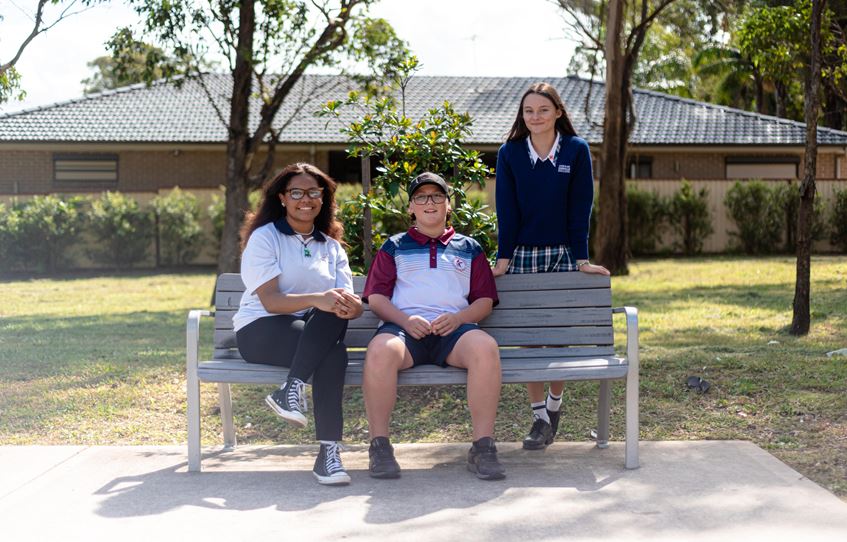
A major new Australia-first research collaboration aims to shape the future of Australia’s school system by addressing critical gaps in knowledge about what works in Indigenous education.
The major study, involving the Australian National University, the Paul Ramsay Foundation and leading Indigenous education organisation, Aurora – aims to reveal what works in improving Indigenous academic outcomes through a tailored High School program for 1,000 Indigenous students.
Leila Smith is the CEO of Aurora, which runs the Redefining Indigenous Success in Education (RISE) program.
Before joining Aurora in 2018, Smith spent five years leading the Policy and Programs team at the Australian Indigenous Doctor’s Association (AIDA). Since then, she has overseen the scale-up of Aurora’s High School Program from 60 Indigenous high school students in one location to 300 students thus far in three locations across NSW and WA.
‘We’re telling students that success isn’t a set path’
The program has shown to double Year 12 completion rates, triple ATAR attainment and double the proportion of Indigenous students who go to university compared with the national average.
Smith says RISE is “at the precipice of an Indigenous-led education revolution” and will generate an evidence base about what works in Indigenous education “unlike anything else in Australia”.
“Through RISE, students can define and pursue their version of success, rather than follow a set or predetermined path. This is how we redefine Indigenous success in education,” Smith told The Educator.
“We’re telling students that success isn’t a set path, it’s what they say it is. We’re dismantling this false deficit narrative of what it means to be an Indigenous student and proving, beyond a shadow of a doubt, that the options are limitless.”
Smith says the extensive data that results from RISE will establish a clear link between specific types of support and Indigenous student outcomes.
“This will be fundamental to improving educational outcomes of Aboriginal and Torres Strait Islander students, building a pipeline of Indigenous leaders, and creating a platform for Indigenous-led advocacy and reform,” she said.
“We know that if Indigenous students see themselves in the design of the education system, they will be more likely to resonate with it, engage with it, take ownership of it and succeed within it. RISE is an important step in making this a reality.”
‘Helping Indigenous kids succeed on their own terms’
Professor Glyn Davis, CEO of the Paul Ramsay Foundation, said RISE represents “an important opportunity to support Indigenous-led innovation in education”.
“We're pleased to support Aurora to refine the model for their successful high school program, and to test in a culturally appropriate and rigorous way which key components really support Aboriginal and Torres Strait Islander students to succeed on their own terms,” Davis said.
“With Aurora steering this program and engaging deeply with the communities in which they work, we know the insights and impact will reflect the strength of community knowledge and have implications for everyone working for improved outcomes.”
Professor Matthew Gray, Director, ANU Centre for Social Research and Methods, said the University has a long history of working with Aboriginal and Torres Strait Islander communities and organisations to support program design and evaluation.
“Our work with Aurora will be grounded in this experience, and supported through a flow of knowledge between the ANU, Aurora, the Paul Ramsay Foundation and, most importantly, the Aboriginal and Torres Strait Islander students who are at the core of the initiative,” Gray said.
"We share Aurora’s vision of a society in which First Nations Peoples determine their education and career aspirations through life-long learning, and we are excited about the potential of this initiative, what it means for the future of Australia’s education system and how it can contribute to a pipeline of Indigenous leaders.”
‘Empowering the whole school community’
Smith says principals can leverage RISE “to shape a new narrative of high expectations and possibilities with the next generation of Aboriginal and Torres Strait Islander leaders.”
“While there is an increasing integration of Indigenous staff, perspectives and knowledges within schools and the curriculum, there’s still a way to go,” Smith said.
“This is in part because there’s a lack of Indigenous-led data about what works in Indigenous education and how best to support Indigenous student outcomes.”
Smith said the significant data that results from RISE will be pivotal to enhancing this knowledge base.
“These insights will help principals make informed decisions about encouraging and empowering not just Indigenous students, but the entire school community,” she said.
“I also hope that our findings from RISE aren’t just an ‘end goal’, but a process that principals can participate in over the next five years.”
Smith said this is “a learning journey for the team at Aurora as much as it is for anyone else”.
“We are conscious of the significant role that principals and the school community play in supporting and encouraging Aboriginal and Torres Strait Islander students,” she said.
“By keeping an open dialogue about this process, we hope RISE will become a uniting force for change for Indigenous education, the expectations of Indigenous students, and what’s possible if we all work together.”


